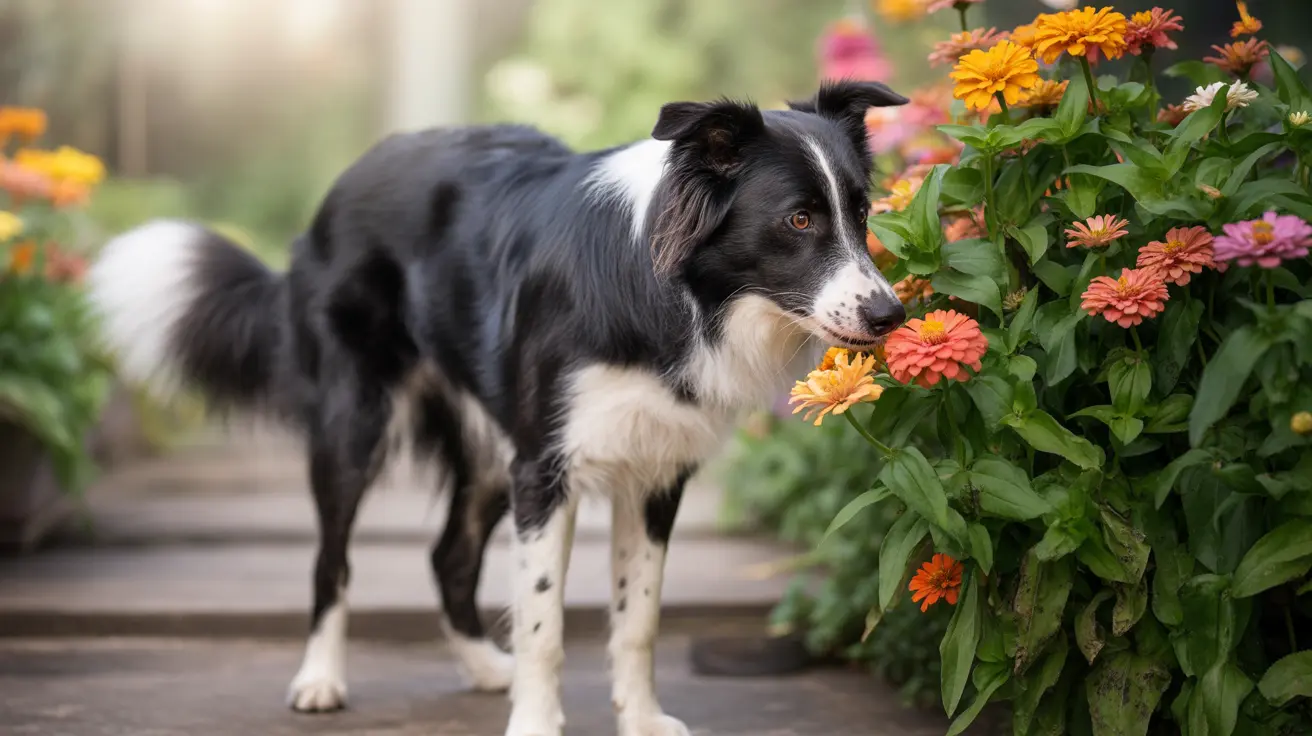For dog owners who love gardening, choosing pet-safe plants is a crucial consideration. If you're wondering about zinnias and their safety for your four-legged friend, you'll be relieved to know that these vibrant flowers are completely non-toxic to dogs. Let's explore everything you need to know about zinnias and pet safety.
The American Society for the Prevention of Cruelty to Animals (ASPCA) officially lists zinnias as non-toxic to dogs, cats, and horses. This makes these colorful blooms an excellent choice for pet-friendly gardens and indoor flower arrangements.
Understanding Zinnia Safety for Dogs
Zinnias, belonging to the genus Zinnia, are considered one of the safest ornamental flowers you can grow around pets. Unlike many common garden plants that can be dangerous or even fatal if ingested, zinnias pose no toxic threat to dogs, regardless of whether they nibble on the flowers, leaves, or stems.
These hardy annual flowers are not only safe but also offer several benefits for your garden:
- Attract beneficial pollinators like butterflies and bees
- Provide long-lasting blooms throughout the growing season
- Come in various heights and colors
- Require minimal maintenance
What Happens If Your Dog Eats Zinnias
While zinnias are non-toxic, consuming any plant material can potentially cause mild digestive upset in dogs. This isn't due to toxicity but rather to their digestive system processing unfamiliar plant matter. Most dogs who nibble on zinnias experience no adverse effects at all.
If your dog does consume a large amount of zinnia plant material, you might observe:
- Temporary mild stomach upset
- Brief episodes of vomiting or diarrhea
- Decreased appetite
These symptoms typically resolve on their own within 24 hours.
Creating a Dog-Safe Garden with Zinnias
Incorporating zinnias into your garden design can help create a beautiful yet safe environment for your pets. Consider these tips for a pet-friendly garden:
- Plant zinnias in raised beds or designated areas to minimize trampling
- Mix with other pet-safe flowers like marigolds and snapdragons
- Maintain proper spacing to allow dogs to move freely between plants
- Keep garden tools and fertilizers stored safely away from pet access
Alternative Safe Plants for Dog Gardens
While zinnias are excellent pet-safe options, you might want to combine them with other non-toxic flowers for variety. Some safe companions include:
- Petunias
- Sunflowers
- Marigolds
- African Daisies
- Snapdragons
Frequently Asked Questions
Are zinnias poisonous to dogs if they eat the flowers or leaves?
No, zinnias are completely non-toxic to dogs. The ASPCA confirms that all parts of the plant are safe if ingested by dogs.
What symptoms might my dog show if it eats zinnias, even though they are non-toxic?
While zinnias aren't toxic, some dogs might experience mild digestive upset if they eat large quantities. Symptoms could include temporary vomiting or diarrhea, which typically resolve quickly.
Can I safely plant zinnias in a garden where my dog frequently plays?
Yes, you can safely plant zinnias in areas accessible to dogs. These flowers are completely safe and make excellent additions to pet-friendly gardens.
How do zinnias compare to other common garden plants in terms of pet safety?
Zinnias are among the safest garden plants for pets, unlike toxic varieties such as lilies, foxglove, or oleander. They're an excellent choice for pet-friendly landscaping.
What should I do if my dog eats a large amount of zinnia plant material?
While no serious intervention is typically needed, monitor your dog for signs of digestive upset. If symptoms persist beyond 24 hours or seem severe, consult your veterinarian.
Remember, while zinnias are safe for dogs, it's always best to discourage pets from making a habit of eating any garden plants. Maintain a variety of engaging toys and ensure your dog has plenty of proper food and fresh water to minimize their interest in snacking on your garden.






